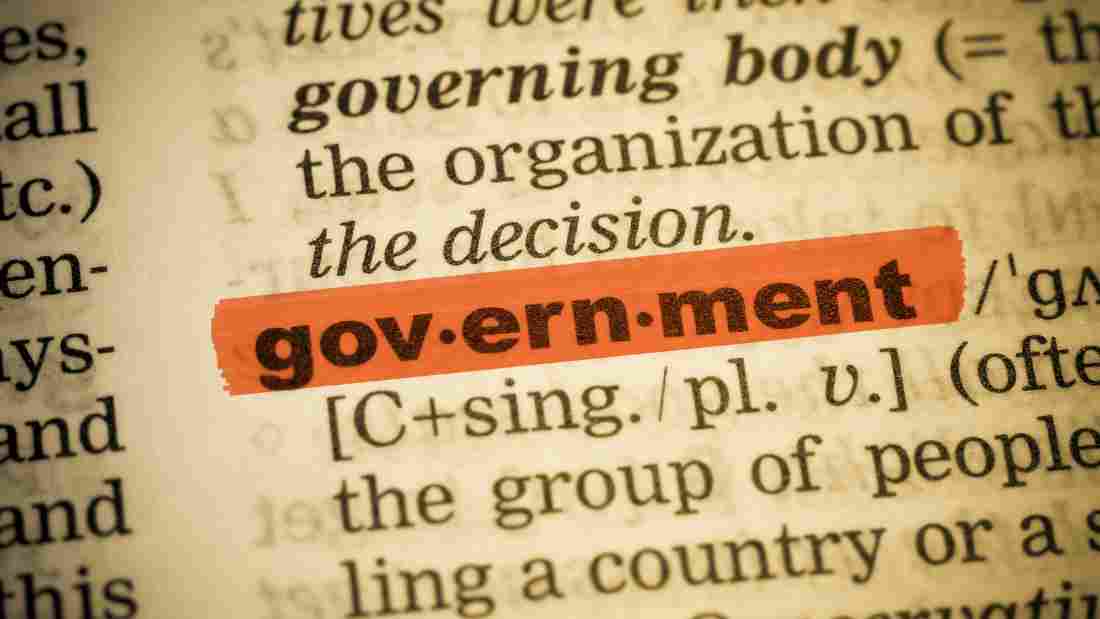Social contract theory is a political and moral theory that asserts that individuals give up some of their individual freedoms in exchange for protection and security provided by the government. This theory argues that people agree to give up some of their natural rights and follow laws created by the government in order to maintain social order and prevent chaos.
The individual’s role is to obey the laws and regulations put in place by the government in order to maintain social order and prevent chaos. Citizens also have a responsibility to support and participate in the democratic process, such as voting in elections, to ensure the government remains accountable and responsive to citizens’ needs.
Moreover, Social Contract Theory suggests that individuals have the power to hold the government accountable if it breaks the terms of the social contract by infringing on citizens’ rights or failing to uphold its end of the agreement. This could include protesting, participating in peaceful demonstrations or engaging in other civic actions to seek redress.
The Origins of Social Contract Theory
The origins of social contract theory can be traced back to the seventeenth-century philosophers Thomas Hobbes and John Locke.
Hobbes argued that life outside of a political order was solitary, poor, nasty, brutish, and short. Therefore, people entered into a social contract to create a government to provide them with security and protection in exchange for obedience to the government’s laws.
Locke, on the other hand, believed that the state of nature was not as harsh as Hobbes had depicted it to be. According to Locke, people entered into a social contract to protect their natural rights, including the right to life, liberty, and property. The government’s role was to protect these natural rights and individuals would obey the laws created by the government as long as those laws were just and fair.

The Core Precepts of Social Contract Theory
Social Contract Theory is a central concept in political theory, which explores the concept of an agreement between individuals and the government, highlighting the mutual obligations of the state and its citizens. At its core is the idea that individuals surrender some liberty for security provided by the government. This exchange of liberties is the foundation of a contract, where the state promises to act in the best interest of its citizens, in exchange for the population’s submission to the laws and regulations of the state.
Individuals sacrifice certain liberties for societal security
Social Contract Theory asserts that individuals give up some of their natural rights, including liberty and freedom, in exchange for security provided by the state. According to the theory, without an organized government, society would be plunged into chaos, with everyone motivated by self-interest, resulting in what philosopher Thomas Hobbes refers to as the “state of nature.”
The state of nature is characterized by intense competition, fear, and aggression, where there would be deprivation of fundamental human needs for basic necessities such as food, water, and shelter, leading to a struggle for survival. Therefore, individuals must voluntarily relinquish some of their natural rights in exchange for the government’s protection and other such benefits, as dictated by the social contract.
By agreeing to surrender individual rights and freedoms, individuals acknowledge their willingness to abide by the government’s laws and regulations, which play a crucial role in controlling human conduct and the pursuit of happiness. A well-ordered society depends on citizens following the agreed-upon rules of the social contract.
For instance, individuals give up the right to take matters into their hands and exact private revenge. In exchange, the government establishes and enforces laws and regulations to maintain order, protect property rights, and guarantee economic exchange. By adhering to these rules, individuals accept their responsibility to contribute to society’s greater good.

The government is responsible for promotion of the common good
The Social Contract Theory suggests that the government’s primary responsibility is to work for the common good of its citizens. This means that the government must strive to provide services and resources that enable citizens to thrive, even if it means implementing policies that may not receive widespread support from every section of the society.
The concept of the common good implies that the government should prioritize the overall well-being of its citizens rather than promoting the vested interests of select groups. The government must provide essential services like healthcare, education, and infrastructure that contribute to citizens’ quality of life. Additionally, the government must implement policies that benefit society as a whole rather than just catering to specific groups.
The government’s obligation to work for the common good is based on the idea that the purpose of government is to serve the needs of its citizens. The government must establish policies that promote equality and social justice, ensuring that every citizen has access to basic human rights and necessities.
Furthermore, the role of the government goes beyond providing essential services and resources; it must also safeguard the country’s future. This implies that the government should take proactive measures to prevent activities that may be harmful to citizens or the country’s environment in the long run.
The government must establish systems and policies to prevent activities that may be harmful to the environment, promote sustainable development, and ensure food and water security. The government must also consider carefully the implications of its policies for future generations and prioritize the long-term interests of the country rather than emphasize short-term gains.

The government’s legitimacy is derived from the consent of the governed
The third precept of Social Contract Theory posits that the legitimacy of a government comes from the consent of its citizens. According to this view, governments have authority because individuals agree to give up some of their freedom in exchange for the state’s protection and other benefits. Therefore, the power wielded by governments is based on the agreement and consent of the governed.
This view suggests that the government’s authority and power are derived from the people rather than coming from a divine source or a single ruler. By entering into a social contract, citizens establish the framework of government power and authority. The agreement between the government and its citizens is a fundamental aspect of the legitimacy of a government.
Moreover, the concept of legitimacy in Social Contract Theory suggests that governments must remain accountable to their citizens to maintain their authority. For instance, if a government fails to provide essential services, protects only the interests of the ruling class, or violates its citizens’ natural rights, then it loses its legitimacy.
Institutions such as constitutions, laws, and elections play a crucial role in ensuring a government’s legitimacy. Elections provide citizens with an opportunity to hold the government accountable by voting out leaders who fail to meet citizens’ expectations. Constitutions and laws, on the other hand, provide a framework of rules that the government must follow.
The social contract is a bilateral agreement
Social Contract Theory asserts that the social contract between citizens and the government is built on mutual obligations. The government promises security and protection to citizens in exchange for their agreement to follow the laws, rules, and regulations implemented by the government.
The mutual obligations of the social contract have implications for both the government and citizens. For the government, it implies creating policies, establishing laws, and providing essential services that benefit citizens. The government must prioritize citizens’ needs, ensure social justice and equality, and guarantee citizens’ fundamental rights.
On the other hand, the mutual obligations of the social contract require citizens to be law-abiding, respect the government’s authority, and support the state’s efforts to provide essential services to society. Citizens must participate in the democratic process, such as voting in elections, to hold the government accountable and ensure that it is working for the common good of citizens.
The principle of mutual obligations also suggests that any breach of the social contract by either the government or citizens undermines the agreement’s legitimacy. A breach of the social contract by the government, such as implementing policies that violate citizens’ rights, is a violation of the contract, and citizens have the right to protest and seek change. Simultaneously, a breach of the social contract by citizens, such as violent protests, is also a violation that undermines the legitimacy of the social contract.
The state must provide for the welfare of the people
According to Social Contract Theory, the state is responsible for ensuring the welfare of all its citizens. One of the core obligations is to ensure access to education to all its citizens. Education is a vital component for developing human capital, promoting literacy and critical thinking, and fostering the development of new skills, which is an essential requirement for economic growth and sustainable development.
This leads us to another essential obligation of the state, which is to ensure a stable economy that promotes employment opportunities. This involves creating economic policies that encourage investment and entrepreneurship and offering a supportive business environment.

The Role of Government in Social Contract Theory
In Social Contract Theory, the role of government is to maintain social order and facilitate the common good of its citizens. It works towards these objectives and provides its citizens with necessary services and resources, such as healthcare, education, infrastructure, and security.
According to Social Contract Theory, the government should act as a neutral arbitrator, responsible for upholding individual rights and ensuring the welfare of society as a whole. This government should not prioritise any particular group, and it should operate in a transparent manner. Instead, the government must create a fair and impartial legal system, promoting equal opportunities and ensuring that everyone is subject to the same laws.
Social Contract Theory also asserts that the government’s legitimacy is derived from the consent of its citizens. As such, the government must be accountable to its citizens and ensure that it is acting in their best interests. When the government fails to operate in this manner or infringes on citizens’ rights, it breaches its end of the social contract. Citizens then have the right to protest, vote, or take other action to seek redress against the government.
Conclusion
In conclusion, Social Contract Theory is a philosophical concept rooted in the idea of mutual obligations and responsibilities between a government and its citizens. This theory emphasizes the importance of creating a stable and just society that promotes the welfare of all its citizens.
Through a social contract agreement, citizens give up some of their natural rights in exchange for the government’s protection and provision of essential services. The government has a responsibility to maintain social order, provide for citizens’ welfare, and observe their rights. On the other hand, citizens have a responsibility to support the government, obey the law, fulfil their civic duties, and participate in the democratic process.
Anthropology Glossary Terms starting with S
Disclosure: Please note that some of the links in this post are affiliate links. When you use one of my affiliate links, the company compensates me. At no additional cost to you, I’ll earn a commission, which helps me run this blog and keep my in-depth content free of charge for all my readers.


